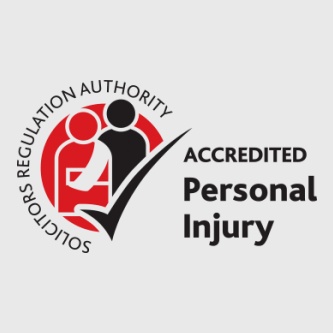Case handler(s): Ben Priestley (Senior Solicitor) assisted by Christopher Lecky (Solicitor)
In this case, we acted for a young client who sustained a very severe traumatic brain injury as a result of a road traffic accident, when he was a front seat passenger in a vehicle driven by his close friend, which collided with an oncoming vehicle.
For a time after the accident, our client was described as being in a minimally conscious state and although there has been some improvement in his condition, he remains profoundly damaged by the injuries sustained in the accident.
Features of our client’s case
To thoroughly prepare and establish our client’s case both on liability and ‘quantum’ (the value of our client’s claim), expert evidence was commissioned from eminent experts in the following specialisms:
Liability:
- Neurosurgery
- Neuro-radiology
- Accident Reconstruction
- Toxicology
Quantum:
- Neurology
- Neuro-psychology
- Orthopaedics
- Ophthalmology
- Speech and Language Therapy
- Physiotherapy
- Occupational Therapy
- Assistive Technology
- Accommodation
- Court of Protection
The experts we instructed prepared reports over the life of the case. To counter our evidence, the Defendants secured evidence from experts in the same disciplines, meaning there were 30 expert witnesses as well as 7 lay witnesses to manage and advise the client’s family upon.
Where we added value as serious injury specialists
This maximum severity case demonstrates the high value, complex catastrophic injury litigation that our team at Serious Law LLP are equipped to deal with.
Throughout the case, the issues of contributory negligence (whether our client contributed to the injuries through their own actions), and the value of our client’s claim were disputed throughout by the Defendants. The Serious Law team secured Robert Weir QC and Matthew Brunning of Counsel to assist with the complex litigation conducted in the High Court.
Despite the long-standing liability dispute, we secured very substantial interim payments from the Defendants (multi-million pounds in total), to facilitate a successful package of support and therapy in the client’s own home, that had been adapted to meet his needs. The annual cost of specialist care alone was almost £400,000.
Why Serious Law was one of a select handful of firms uniquely able to handle the matter
In addition to commissioning the appropriate evidence, our handling of the matter involved many other facets including:
- Providing comprehensive support to our client’s family during an extremely difficult time, including frequent visits to provide face-to-face advice and guidance;
- Assisting in managing a vast team of therapists and co-ordinating a comprehensive timetable of rehabilitation and support;
- Successfully resisting the Defendant’s attempts to introduce epidemiological evidence from a life expectancy expert based in the United States;
- Assisting our client and Professional Deputy (appointed to represent our client’s financial interests due to their lack of capacity to manage their financial affairs), in securing a refund of past support costs that ought to have been paid by the local Clinical Commissioning Group. The sum eventually refunded to the Claimant was several hundred thousand pounds;
- Managing a complex family dynamic involving our client’s estranged parents and separate partners.
Due to our client lacking capacity to make his own decisions, Tim Walters, Professional Deputy of Serious Law, was appointed by the Court of Protection, which made communication between the legal team and the Court of Protection team streamlined.
There were very complex issues to advise the Litigation Friend upon including:
- The potential finding for contributory negligence given issues of alcohol and failure to wear a seatbelt;
- The substantial dispute regarding life expectation and the primacy of expert clinical opinion on the subject, over that of the statisticians;
- The advantages and disadvantages of a lump sum settlement versus a periodical payment settlement;
- The impact of statutory funding on a damages award at trial (Crofton V NHSLA 2006), and the mechanism to ameliorate the risk of ‘double recovery’;
- The strengths and weakness of an abundance of evidence across multiple reports from many different experts.
The settlement
Numerous meetings with both liability and quantum experts were held through the duration of the case and important revisions made to draft reports following discussions between expert and legal team – often making a significant difference to the value or complexion of the claim.
A difficult issue in the case was associated with whether our client ought to give credit for the payments he received from the state, to avoid ‘double recovery’. Serious Law were able to negotiate settlement terms that meant no credit was given and in essence a further multi-million pound sum was secured for our client (assuming life expectation to age 50 and continuation of state funding), in addition to the net damages of several million pounds.
Due to media interest in our client’s case, we secured an Anonymity Order to avoid further distress to our client and their family.









